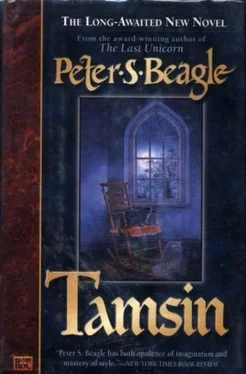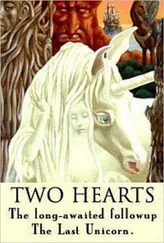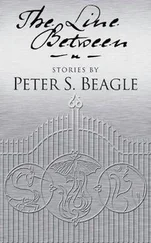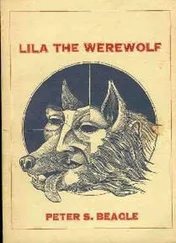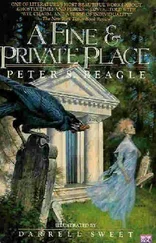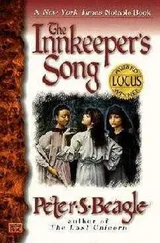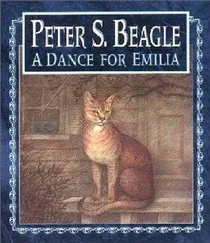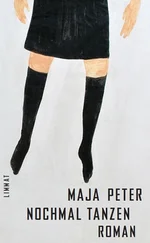Peter Beagle - Tamsin
Здесь есть возможность читать онлайн «Peter Beagle - Tamsin» весь текст электронной книги совершенно бесплатно (целиком полную версию без сокращений). В некоторых случаях можно слушать аудио, скачать через торрент в формате fb2 и присутствует краткое содержание. Год выпуска: 1999, Издательство: ROC, Жанр: Фэнтези, на английском языке. Описание произведения, (предисловие) а так же отзывы посетителей доступны на портале библиотеки ЛибКат.
- Название:Tamsin
- Автор:
- Издательство:ROC
- Жанр:
- Год:1999
- ISBN:нет данных
- Рейтинг книги:3 / 5. Голосов: 1
-
Избранное:Добавить в избранное
- Отзывы:
-
Ваша оценка:
- 60
- 1
- 2
- 3
- 4
- 5
Tamsin: краткое содержание, описание и аннотация
Предлагаем к чтению аннотацию, описание, краткое содержание или предисловие (зависит от того, что написал сам автор книги «Tamsin»). Если вы не нашли необходимую информацию о книге — напишите в комментариях, мы постараемся отыскать её.
Tamsin — читать онлайн бесплатно полную книгу (весь текст) целиком
Ниже представлен текст книги, разбитый по страницам. Система сохранения места последней прочитанной страницы, позволяет с удобством читать онлайн бесплатно книгу «Tamsin», без необходимости каждый раз заново искать на чём Вы остановились. Поставьте закладку, и сможете в любой момент перейти на страницу, на которой закончили чтение.
Интервал:
Закладка:
“It’s called no-till farming,” he told them. “I studied it fairly extensively when I was in the States. Very much the new thing. Very popular in the Midwest.”
The Lovells weren’t buying. They particularly weren’t buying Evan’s explanation that with this method you don’t do any plowing at all—just lay the seeds down on the ground and walk away. Not really walk away; you need to be using special improved seeds, and just the right amounts of the right kinds of fertilizer. Sometimes you don’t get as big a crop the first year or two, because the ground’s so used to disks and blades harrowing it up. And if it sounds for a minute as though I know what I’m talking about, forget it. I just live here.
Tony and I were on floor-mopping duty when Evan laid it on the line for the Lovells. “I know it’s hard to imagine, after so many millennia of people all over the world doing exactly the same thing with their land. Good soil or bad—you turn it over, you break it up, you hack furrows into it, you sow—you weed, you spray, you harvest, you market, you start over, world without end.” He shook his head solemnly. “All those centuries, basically unaltered. Amazing, when you think of it.”
Masses of Lovells glowered back at him. (Actually, they never came more than three or four at a time, but they always managed to look like an entire Board of Directors.) One Lovell said, “Nothing wrong with that. Civilization’s always built on people farming their land.”
“Civilizations change,” Evan said. “People change. And land changes—that’s what I’ve been trying to make you see. This soil, this earth we’re standing on has had the equivalent of a hurricane blowing through it every year for a thousand years. There’s nothing left. I want you to understand this. There is nothing left . The only reason Stourhead Farm and all the farms in West Dorset produce so much as a dandelion, a bloody burdock leaf, is that they’re absolutely saturated in chemical fertilizers. Zombie farms, the walking dead!” The Lovells’ mouths were hanging open like steamshovel jaws. Evan said, “If you’re serious about wanting to restore Stourhead to what it was when the land was young, then you’re going to have to change with the land. This is what’s needed, and this is how I’m going to be managing here from now on.”
A big bald Lovell was the first to stop spluttering. He said, “And I suppose there’s not a thing we can do about it.”
Evan smiled. “You’re my employers. You’ve always got a choice.”
The Lovells didn’t exactly call for a time out and a huddle, but close enough. There was a lot of silent shrugging, grunting, head shaking, mouth twitching, hand spreading, and general eyebrow athletics going on, while Evan leaned back in his chair and stretched his legs, just as though none of their antics meant a thing in the world to him. When he looked over and saw Tony and me leaning on our mops and watching, he gave us a long, slow wink. Cool as Mister Cat.
And he got away with it. The bald Lovell finally grumbled, “Might have said something . . well, in for a penny, in for a pound, hey?” and the rest of them went along. Evan could have two years to try out his no-till method, with an option for a third year if the second crop at least equaled this last harvest. It didn’t seem like much of a shot to me, but it was plainly all he was going to get out of the Lovells. He told them what kind of new equipment he’d need, and how much it would cost, and the Lovells pissed and moaned some more, but it came out consent. Evan got them to put everything in writing before they left, just in case.
“They could have fired you,” Tony said afterward. “They could have bloody bounced you, right on the spot. We’d have been back bunking in with Charlie.”
Evan shook his head. “They’d lose at least a year and a harvest finding another manager this late—they know it, and I know it, and they know I know. Now , on their way home, they’ll start looking around in a hurry, but it’ll keep them busy for a while. All I’ve done is buy us a bit of time, which was all I wanted. Who’s for chess? Julian, I’ll give you a rook, how about it?” Evan would have made a great chess hustler, like the ones in Central Park, if he weren’t a crazy farmer.
Later, with the rain coming down hard again, with the lights going on and off and the TV completely dead, and everyone piled together in the music room listening to Sally playing Rolling Stones songs the way Bach or Schubert or Mahler would have done them, I asked on an impulse, “Evan, does anybody know anything about Roger Willoughby’s family?”
Evan was leaning against the piano bench with his head resting lightly on Sally’s leg. By now I was almost used to seeing them like that, as though they’d been married forever; it only got to me once in a while, when I was offguard or in some kind of mood. He said, “It depends on what you want to know, Jenny. I could show you a copy of Roger’s will, which is quite detailed about who gets what, and I could describe the changes his oldest son, Giles, made when he took over the farm in 1699. But that’s not what you’re after, is it?”
“No,” I said. Tony was propped on an elbow, thumb-wrestling with Julian, but he was watching me really curiously, which is why he was losing. I said, “What about the other children? There were the two boys and two girls, only one of them died of the Black Plague.” That was a mistake—now everybody was looking at me. Well, in for a penny, like the Lovells. “I mean, that’s what I heard, anyway. I was just wondering about the other daughter, and about—I don’t know… if any of them could have gotten mixed up in Monmouth’s Rebellion or anything like that? Tony doesn’t think so, but I was wondering.”
If human life on this planet ever depends on whether or not I can tell a lie without blushing, humanity had better start packing. I wasn’t even lying—I was just trying for casual, and I can’t even do that without my whole face spontaneously combusting. Everybody was polite about it, though, and nobody asked any of the questions I’d left myself wide open for. Evan did give me a long look, way too thoughtful—Tony gets it from him, it just occurs to me now—but all he said was, “You should talk to old Guy Guthrie.”
Sally stopped playing for a moment. “The man at the market? What would he know about the Willoughbys?”
“Guy Guthrie knows everything,” Evan said. “Everything about Dorset, anyway. The Celts, the Romans, the people who cut the Cerne Abbas Giant in the turf, the ones who lived in Maiden Castle, the ones who went with Monmouth—the Tolpuddle Martyrs, Thomas Hardy, Barnes, the lot. And their ghosts.” I must have dropped my teeth, because Evan smiled his long, slow smile at me. “He collects ghosts, old Guy does. Hobs and bogles too—get him to tell you about the Screaming Skull of Bettiscombe Manor—but mostly it’s Dorset history, the bits and loose ends that don’t fit into books. He’ll know about the Willoughbys.”
He did, too. Does , I mean: Guy Guthrie’s still alive, still doesn’t look any more than seventy-five—though he’s got to be ninety— still wears Sherlock Holmes tweeds and ulsters, and still works part-time at the Dorchester Museum, though you don’t see him running the cattle auctions at the farmers’ market the way he used to do. He lives alone in Puddletown, a few miles east of Dorchester, in a stone cottage that smells of old books and a nice old dog named Clem. Sally dropped me off there one Saturday afternoon when she had pupils to see.
Mr. Guthrie served me milky Indian tea, the way they have it at Meena’s house, and little cakes, the kind that taste like sweet sand, and which you can actually feel rotting your teeth while you’re eating them. He’s a tall man, with a big broad face, Crayola-blue eyes, and a hayrick of white hair that used to be red. He poured tea for himself, leaned forward, and asked me, “Now why on earth would a child like yourself be wanting to know about Tamsin Willoughby?”
Читать дальшеИнтервал:
Закладка:
Похожие книги на «Tamsin»
Представляем Вашему вниманию похожие книги на «Tamsin» списком для выбора. Мы отобрали схожую по названию и смыслу литературу в надежде предоставить читателям больше вариантов отыскать новые, интересные, ещё непрочитанные произведения.
Обсуждение, отзывы о книге «Tamsin» и просто собственные мнения читателей. Оставьте ваши комментарии, напишите, что Вы думаете о произведении, его смысле или главных героях. Укажите что конкретно понравилось, а что нет, и почему Вы так считаете.
